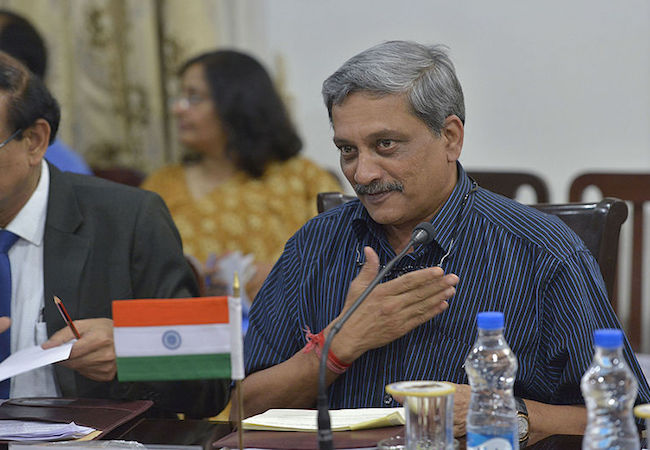SAARC satellite: India sugarcoating its military ambitiousness

By Ahyousha Khan
21st century has brought many changes. There have been new trends in international arena like information technology, globalization, geo-economics and regional integration. States are relying on regional cooperation and integration to achieve their economic and developmental goals.
However, even in 21stcentury regional integration is one thing South Asian states are infamous for. Their grievances, deep rooted mistrust, conflicts and ambitions never allowed these hostile neighbors of South Asia to experience regional solidarity. Every action taken by one state is a concerning matter for the other state in the region. As states in the region are more concerned about absolute gains and are in for a zero-sum game. Even in this gloomy situation all is not lost and some regional cooperation and integration initiatives are active in the region.
South Asian Association for Regional Cooperation (SAARC) is one such arrangement that strengthens the faith that there is hope for South Asia. In the 18th SAARC Summit India, one of the most prominent states in South Asia instills the faith in regional cooperation by announcing that it will gift its South Asian neighbors a satellite to communicate with the help of its 12 Ku Band transponders. This announcement by India was received with enthusiasm not only at regional level but also at the international level.
But, there is a famous proverb that “nothing is free of cost.”, so was this gift from India to its neighbors that came with the cost. It costed India’s neighbors the right to operate the gift-satellite or right to learn anything about the gifted technology.
So, Pakistan along with other South Asian states rejected this marketing stunt of Indian government. Initially Pakistan wanted to be part of this project and proposed technological and financial assistance. But, upon recognizing India’s intentions about its satellites program Pakistan withdrew from the initiative.
This attempt by India to take regional states on board through a gift offer was nothing but a counter-measure to control China’s influence in the region. For Pakistan the alarming aspect in such an agreement was dependency on India, when there is no way to ensure that in time of crisis whether such communication channel will be effective or not.
Moreover, Indian continuous ambitiousness in the space is eliminating its rhetoric for utilizing space capabilities as a gift. In year 2017 India made a world record of sending 104 satellites in space, which also entailed Cartosat-2 series satellite. India began the year 2018 with the launch of PSLVC-40 by its Polar satellite launch vehicle, which also carries 710 kg Cartosat-2 series satellite. Fact to be reckoned with is that Cartosat-2 series satellite is not an ordinary satellite; it is specially designed for earth observation. Thus, it is capable of high resolution scene specific spot imageries using its panchromatic and nutt spectral cameras and is able of remote sensing. Which will enable India to gather intelligence on it’s enemies without much hurdle. So, with this technology now India has an eye in the sky and is militarizing space with dual use technologies.
Considering the track record of arms proliferation in South Asia, one cannot neglect that Indian peaceful utilization of space is nothing but a façade. India is an ambitious player that is robustly working towards its military goals. With eye in the sky in the form of satellite India’s Intelligence Surveillance Reconnaissance (ISR) capabilities will multiply. Another established fact is intensification of such efforts by India and its negative effect on the strategic stability of South Asia.
But, point to ponder for Pakistan in this situation is for how long it will rely on foreign satellites for communication and ISR capabilities. Moreover, what is the credibility of such satellites service providers during crisis.
Furthermore, for how long Indian ambitiousness will threaten Pakistan’s vital interests. In all these circumstances Pakistan needs to reorganize its priorities regarding where to spend and how much to spend. No doubt, space technology is expensive and time taking but such vital initiatives must never be politicized. As the coming age will be dominated by information technology, communication, computers and intelligence it is important that Pakistan must gear up not only to counter Indian ambitiousness but for its own survival and development as well. As satellites are the key for gathering intelligence and communication negligence is not an option for Pakistan.
Ahyousha Khan is a Research Associate at the Strategic Vision Institute in Islamabad, Pakistan




